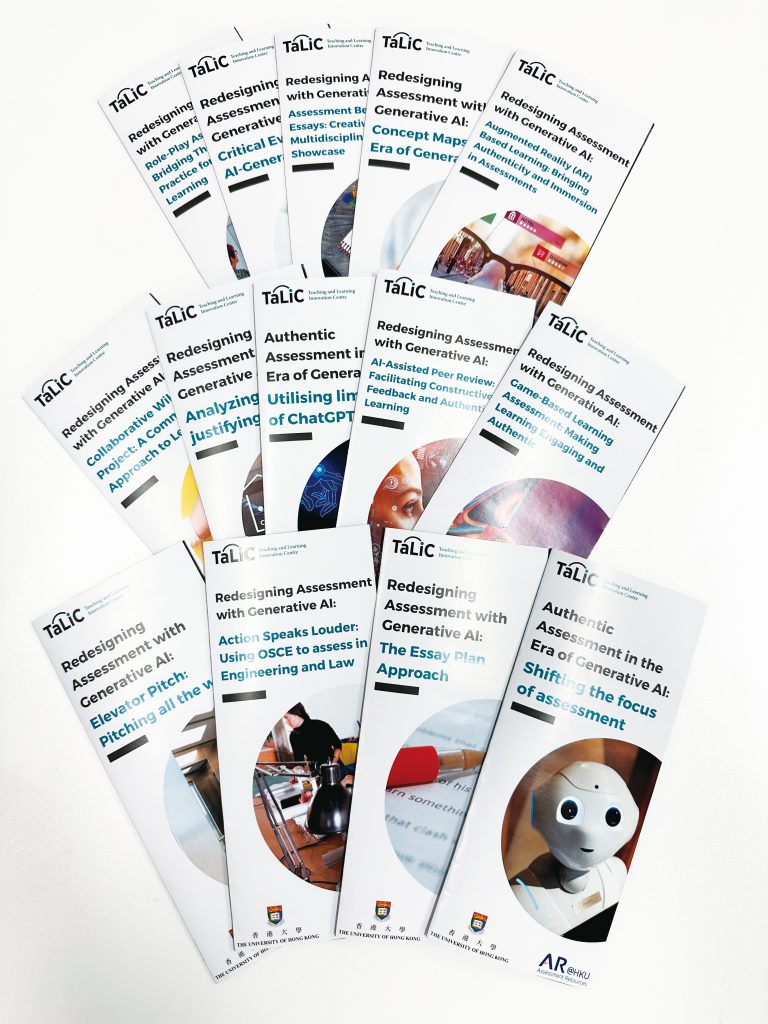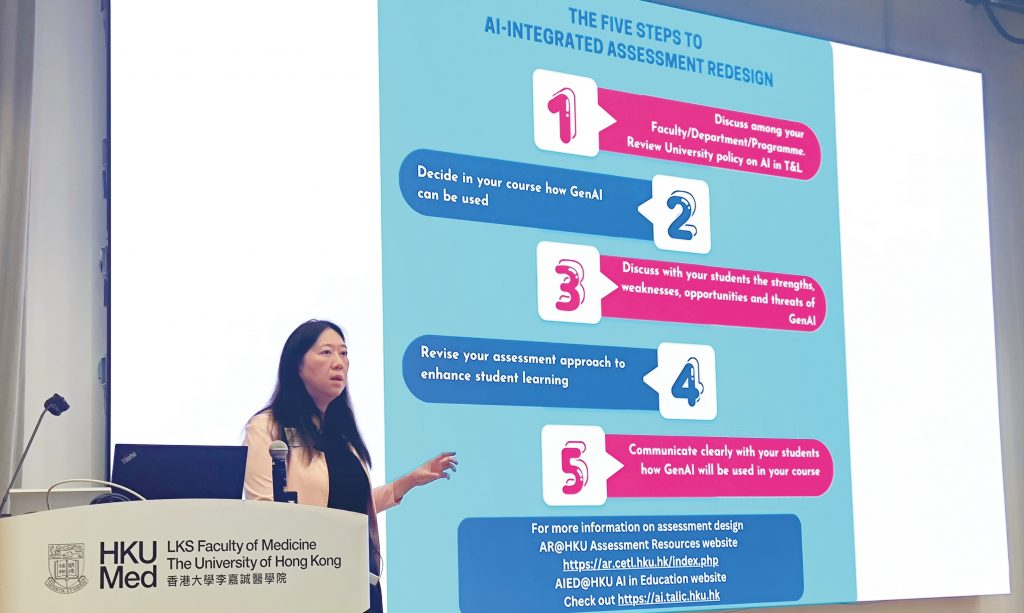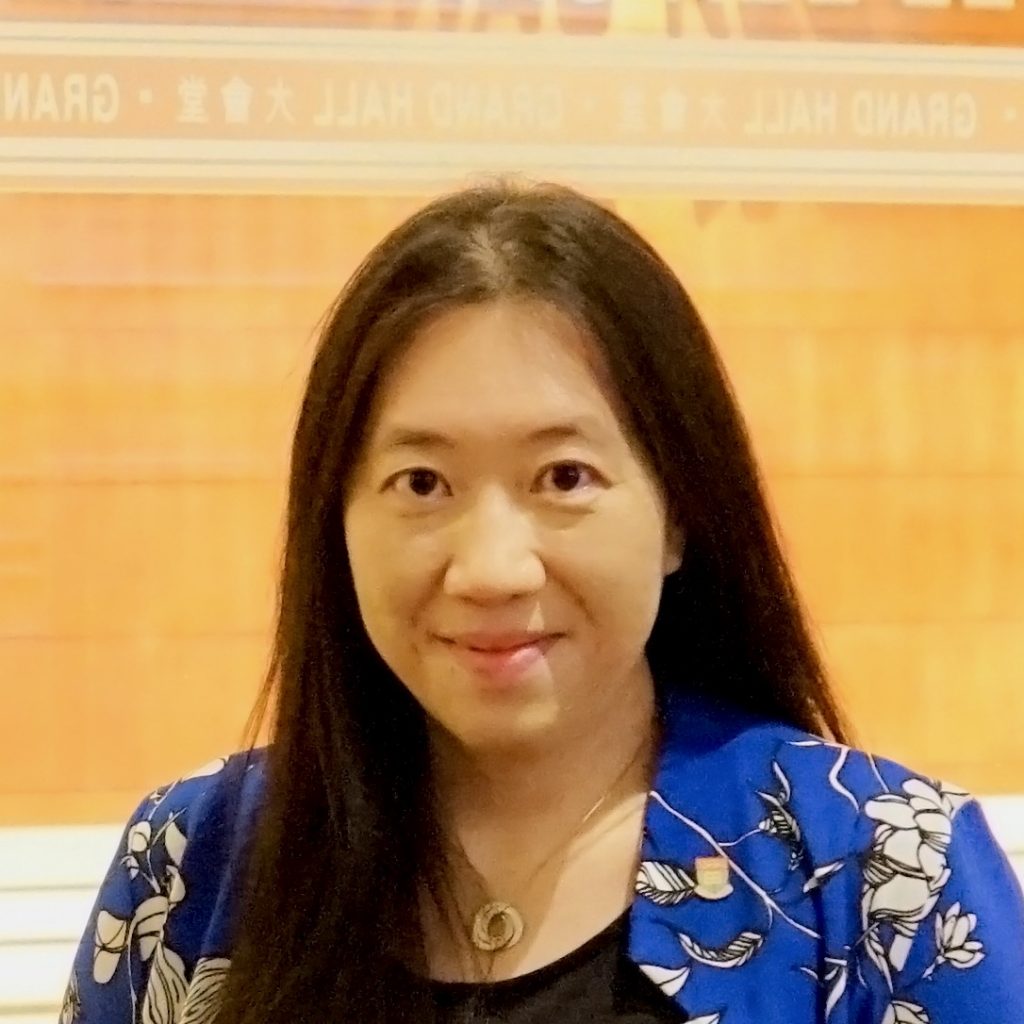November 2023 | Volume 25 No. 1
Pedal to the Metal
Listen to this article:
Professor Cecilia KY Chan thrives on being busy. Before the age of 30, while she was assistant professor at an Irish university, she added a Masters in Education to her PhD in Electronic Engineering and at the same time introduced initiatives that vastly increased student retention rates from about half to nearly 95 per cent.
In 2008, when she arrived at HKU’s Centre for the Enhancement of Teaching and Learning (CETL) and the whole educational landscape in Hong Kong was embarking on a major transition to four years of university from three, she got to work not only supporting teachers and helping design outcome-based assessment, but also developing new initiatives in such areas as e-learning, experiential learning and authentic assessment.
And now, after dealing with the challenges that COVID-19 brought for learning and assessment, she is jumping into the field of generative artificial intelligence (GenAI) in education. On July 1, she was named the Director of TALIC, a one-stop shop for teaching support at HKU that brings together CETL, the Technology-Enriched Learning Initiative and the Teaching and Learning Evaluation and Measurement Unit. The University wants all teachers to embrace GenAI and Professor Chan’s role is to give them the support they need to make this happen.
Rapid results
She worked night and day to oversee the launch of WhatsApp support, a dedicated website called AI in Education (soon to be launched), an AI clinic for teachers and a five-week self-paced online module on AI literacy for staff and students – all available by the start of semester in August. There is also an assessment guide in the making and she even got involved in the details of producing information leaflets and team T-shirts.
This is on top of regular outreach to the different faculties and staff, building collaborations and networks with other institutions in Hong Kong and globally, as well as doing her own research.
“I like busyness,” she said. “When you provide teaching support, you have to be energetic or it just won’t work – people will just go back to their research and not focus on developing their teaching.”
To pack it all in, she admits to not sleeping very much, but her enthusiasm sustains her. For instance, in the early days of the pandemic, she was one of the first in the world to organise global seminars on Zoom where professors from top universities met to discuss teaching and learning online. Thousands of people joined the talks from across the continents.
She has also managed to continue her own research and bring it into her work at CETL and TALIC. Professor Chan has published on the need for students to obtain 21st-century skills in work that has attracted interest from more than 20 universities, such as Oxford, Tsinghua and Sydney.
These skills include such things as communication, teamwork, critical thinking, resilience and leadership that are not taught directly but are highly valued in the workplace and in meeting society’s needs.

Information leaflets designed by Professor Chan and her team covering a range of subtopics under Redesigning Assessment with Generative AI.
Transferrable skills
Existing courses often incorporate these skills indirectly so last year she developed a system to accredit these courses – hoping also to inspire other teachers to follow suit.
“21st-century skills are important. I’m living evidence of that. I came from engineering, I applied myself and then I became an education professor. I have skills that I can transfer,” she said.
Professor Chan believes such skills will also be important in navigating GenAI because students still need to apply critical thinking, information literacy and so on. “I don’t think GenAI can replace teachers – students still want a human teacher that can talk to them and empathise. But if we want to be better than AI, we need to understand it better.”
For her, that means improving AI literacy, which the online course for staff and students addresses; raising awareness of safety and security issues and potential risks; and promoting responsible AI usage, which will vary from discipline to discipline. Teachers also need to consider how to design assessment using AI, such as reverse engineering essays and getting students to think critically about the output they receive from GenAI. TALIC’s programmes address a lot of these topics.
Building a community of practice among teachers is also important to share successes and failures so Professor Chan plans to organise an international conference on AI in education next year. If funding is secured, she also hopes TALIC could develop HKU’s own GenAI system to secure data behind its own privacy walls. “The whole education landscape is changing. We’re doing a lot to address that and it’s exciting,” she added.

Professor Chan presenting on how to harness the potential of GenAI while mitigating its challenges in higher education.
I don’t think GenAI can replace teachers – students still want a human teacher that can talk to them and empathise. But if we want to be better than AI, we need to understand it better.

PROFESSOR CECILIA KY CHAN

